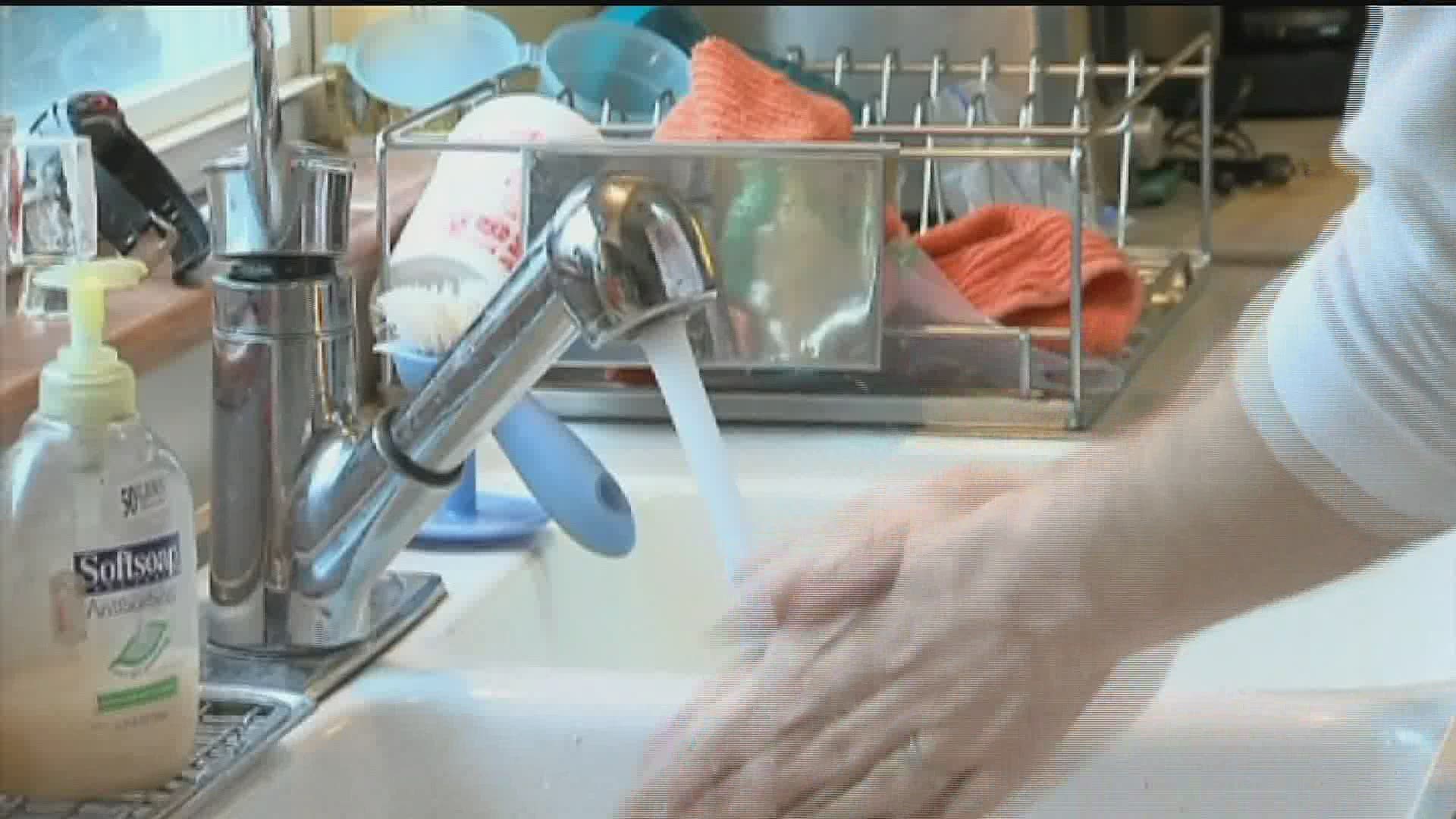HARRISBURG, Pa. — Washing your hands is one of the most important things we do in a regular day and even more important during the COVID-19 pandemic. But, you can do it too much and cause serious damage to the skin on your hands.
"It essentially strips the top layer of your skin off, whose job is to hold hydration into your body," Dr. Peter Helton, a dermatologist in Newport Beach, CA, said.
"What happens with cleansers is the front part of your hand is very tough. When you look at the back part of your hands, that tissue isn't as resilient as the front part of your hands. So when you wash your hands with soap you typically wash them both. When you rinse, you typically cup your hands with water and then you wanna get out of there. What happens is you never fully rinse the back part of your hand. So the soap comes across to the back of your hand. The alkalinity is a slow burn to your skin so eventually it just erodes through the back layers of your skin," Dr. Helton said.
Over-washing can actually increase your chances of getting sick if the damage to your skin becomes severe enough.
"It's like a leaky roof, it allows products and pathogens to get into your body," Dr. Helton said.
To help, you can use a moisturizer after you wash your hands, like Vaseline or mineral oil. Dr. Helton uses a product called "Gloves in a Bottle," which is a hand-shielding lotion that can last for up to four hours according to Dr. Helton. He first discovered it in his residency and it still is one of his favorites.
Be it hand sanitizer or soap, the product you choose can affect your skin as well--not just over-washing. We decided to have a lightning round with Dr. Helton on common items you can choose to determine which is better for your skin.
LIQUID vs. FOAM SOAP
"They both do an equal job. The idea behind foam is your getting to the end result faster," Dr. Helton said.
REGULAR vs. ANTIBACTERIAL SOAP
"In pre-COVID times, antibacterial soap was a little overrated. It wasn't as useful and causing more skin damage than we would have liked, plus the anti-bacterial starts going into the water stream and starts anti-bacterializing what the water ways are. If you use soap, and wash for 20 seconds, you're going to get 95% of what you would with antibacterial," Dr. Helton said.
SCENTED vs. NON-SCENTED
"Fragrances are high on the list for causing contact dermatitis. Having said that, I only see 2% of people that have a rash. Unscented is safer for people who have sensitive skin," Dr. Helton said.
SANITIZER vs. SOAP
"Soap is probably better, because you're getting a physicial dislodgement of microbes and pathogens on the skin," Dr. Helton said.

